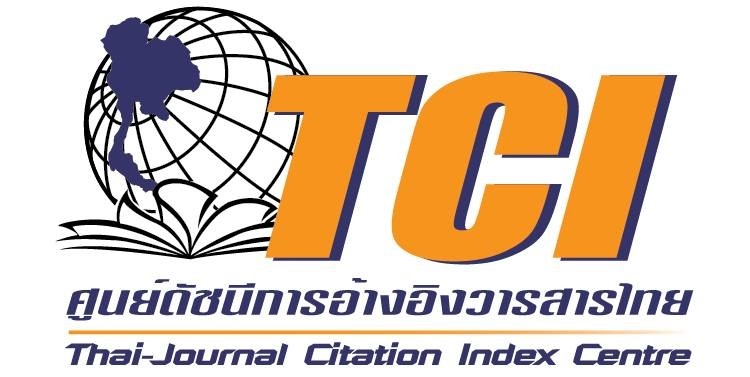Modern public administration and legal adaptation in the digital age and a case study of Thailand
คำสำคัญ:
Modern public administration, legal adaptation, digital age, lawบทคัดย่อ
Thailand is experiencing significant technological changes in the digital era that directly impact public administration, especially Thai legal frameworks. This academic article aims to 1) analyze the necessity for Thai laws to adapt to the digital transition and 2) explore legal issues and propose approaches to improve laws in alignment with digital-age public administration. The study findings indicate that 1) the government's digital transformation affects numerous laws, as Thai legislation tends to be outdated and unable to keep pace with change. This necessitates legal improvements across multiple domains, from personal data protection, cybersecurity, and electronic transactions to online crimes, digital economy, and workers' rights to appropriately support technological changes. 2) To ensure laws can effectively respond to global changes, the government should modernize Thai legislation to align with the digital world, particularly in seven key areas: (1) Personal Data Protection Law, (2) Cybersecurity Law, (3) Digital Economy and Platform Taxation Law, (4) Platform Labor Law, (5) Artificial Intelligence and Technology Ethics Law, (6) Cross-Border Data Governance Law, and (7) Online Crime Law. These legal improvement frameworks will help the government adapt to global conditions in a timely manner, enhance citizen protection, and enable the state to manage the economy and national security efficiently, creating stability for both government and citizens as Thailand transitions to modern public administration in a peaceful and secure manner.
เอกสารอ้างอิง
Bostrom, R. P., & Heinen, J. S. (1977). MIS problems and failures: A sociotechnical perspective. MIS Quarterly, 1(3), 17-32. https://doi.org/10.2307/248710
Brynjolfsson, E., & McAfee, A. (2014). The second machine age: Work, progress, and prosperity in a time of brilliant technologies. W.W. Norton & Company.
Cordella, A., & Paletti, A. (2019). Government as a platform, orchestration, and public value creation: The case of the United Kingdom’s Government Digital Service. Government Information Quarterly, 36(4), 101421. https://doi.org/10.1016/j.giq.2019.101421
Davis, M. (2022). Cybersecurity law and enforcement: Challenges and solutions. Cyber Law Journal, 45(2), 120-135.
De Stefano, V. (2016). The rise of the "just-in-time workforce": On-demand work, crowd work, and labor protection in the gig economy. Comparative Labor Law & Policy Journal, 37(3),461-471.
Dunleavy, P., Margetts, H., Bastow, S., & Tinkler, J. (2006). Digital era governance: IT corporations, the state, and e-government. Oxford University Press.
European Commission. (2021). Electronic identification and trust services (eIDAS). https://digital-strategy.ec.europa.eu/en/policies/eidas.
European Parliament, & Council of the European Union. (2016). Regulation (EU) 2016/679 of the European Parliament and of the Council of 27 April 2016 on the protection of natural persons with regard to the processing of personal data and on the free movement of such data (General Data Protection Regulation, GDPR). Official Journal of the European Union.
European Parliament, & Council of the European Union. (2019). Regulation (EU) 2019/881 on ENISA the European Union Agency for Cybersecurity) and on information and
communications technology cybersecurity certification and repealing Regulation (EU) No 526/2013 (Cybersecurity Act). Official Journal of the European Union, L 151, 15–69. https://eur-lex.europa.eu/eli/reg/2019/881/oj
Goodman, B., & Flaxman, S. (2017). European Union regulations on algorithmic decision-making and a “right to explanation.” AI Magazine, 38(3), 50-57.
Greenleaf, G. (2019). Global data privacy laws 2019: Forty years of evolution and future challenges. University of New South Wales Law Journal, 42(3), 1005–1042. https://doi.org/10.2139/ssrn.3434629
Kshetri, N. (2017). The evolution of cybersecurity regulations. IT Professional, 19(2), 6-9. https://doi.org/10.1109/MITP.2017.23
Lindgren, I., & Jansson, G. (2013). Electronic services in the public sector: A conceptual framework. Government Information Quarterly, 30(2), 163-172.
https://doi.org/10.1016/j.giq.2012.10.005
Margetts, H., & Dunleavy, P. (2013). The second wave of digital-era governance: A quasi-paradigm for government on the Web. Philosophical Transactions of the Royal Society
A,371(1987), 20120382.
Meijer, A. (2015). Government transparency in historical perspective: From the ancient regime to open data in the Netherlands. International Journal of Public Administration, 38(6), 393-414.
National Institute of Standards and Technology (NIST). (2018). Framework for improving critical infrastructure cybersecurity. U.S. Department of Commerce.
https://doi.org/10.6028/NIST.CSWP.04162018
Organization for Economic Co-operation and Development (OECD). (2020). Digital government index: 2019 results. OECD Publishing.
https://doi.org/10.1787/4de9f5bb-en
Organization for Economic Co-operation and Development (OECD). (2021). Model rules for reporting by platform operators with respect to sellers in the sharing and gig economy. OECD Publishing. https://www.oecd.org/tax/exchange-of-tax-information/model-rules-for-reporting-by-platform-operators.htm
Phra Maha Thai Noi Yanmethi (Salang Sing), & Phra Silasak Sumetho (Boonthong). (2021). Adjusting government organizations to the era Digital government. Thammasat Academic Journal, 21(3), 291-299. https://so06.tci- thaijo.org/index.php/dhammathas/article/download/250572/170071
Prachat thammarat. (2020). Introduction to international law. Chulalongkorn University Press.
Suphanat Satcharatana. (2022). Adaptation of the Ministry of Foreign Affairs to become a digital government according to the framework of Thailand's Digital Government
Development Plan 2020 - 2022 [Master's Thesis, Chulalongkorn university]. https://digital.car.chula.ac.th/cgi/viewcontent.cgi? article=9351&context=chulaetd
Siriporn Kaewpila, & Apinya Rodanan. (2020). Digital transformation of government organizations to increase capacity. Competitive ability. Modern Management Journal, 18(1), 16-21.
Somchai Homlaor. (2015). Thai legal history, Winychon Publishing House.
Worajet Phakharat. (2019). Law and the justice process, Winyuchon Publishing House. Westby,
J. R. (2020). Legal frameworks for data protection: A global perspective on privacy laws. Oxford University Press.
Wirtz, B. W., Weyerer, J. C., & Geyer, C. (2019). Artificial intelligence and the public sector: Applications and challenges. International Journal of Public Administration, 42(7),
-615. https://doi.org/10.1080/01900692.2018.1498103
Zuboff, S. (2019). The age of surveillance capitalism: The fight for a human future at the new frontier of power. Public Affairs.
ดาวน์โหลด
เผยแพร่แล้ว
รูปแบบการอ้างอิง
ฉบับ
ประเภทบทความ
สัญญาอนุญาต
ลิขสิทธิ์ (c) 2025 Journal of Public and Private Issues

อนุญาตภายใต้เงื่อนไข Creative Commons Attribution-NonCommercial-ShareAlike 4.0 International License.


 ผศ.ดร.ละมัย ร่มเย็น
ผศ.ดร.ละมัย ร่มเย็น






